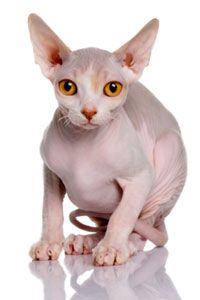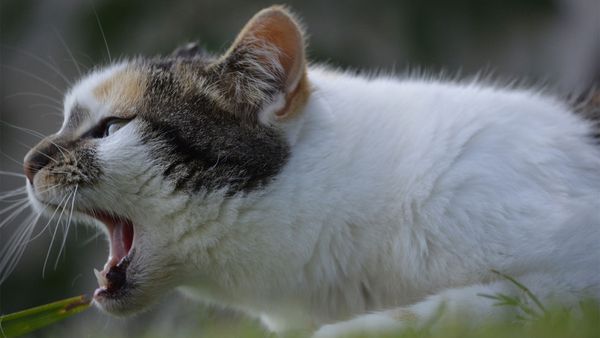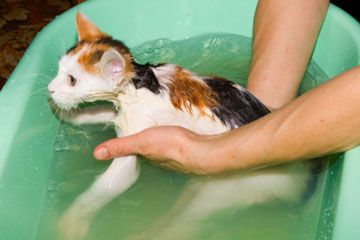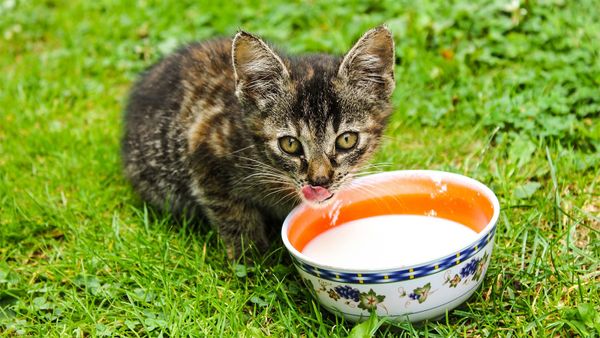When you're a cat owner, you're used to dealing with cat hair -- using a lint roller to get it off your dark clothes,<a> </a>it off of your sofa, even picking it out of your food on occasion. Unless you have a hairless breed such as a Sphynx, there's a certain amount of natural hair loss that you should expect. However, if your cat's hair is visibly thinning, there are bald patches, or you notice areas that are inflamed and red, there's a problem. When your cat loses more hair than normal, the condition is called alopecia.
There are lots of different things that can cause hair loss in your cat, including parasites, diet, psychological factors, infection, allergies or something more serious. Your cat may scratch and groom excessively with an infestation of fleas or mites as well as a fungus like ringworm, causing hair loss. Hair loss can be self-inflicted as a result of stress. A less-than-adequate diet or a change in diet can cause hair loss. Alopecia can also be a manifestation of another condition or disease, requiring diagnosis by your vet.
Advertisement
If there is hair loss in places where you see your cat nibbling regularly, such as his leg or paw, the alopecia is probably a reaction to a parasite. Giving your cat a thorough once-over should turn up the source of the problem, and your vet can suggest medications to get rid of the parasite. When your cat is no longer licking and scratching the area, the hair should grow back with time. It's especially important to get treatment if you suspect a fungal infection, as these can easily spread to humans (in addition to your other furry friends).
But what if you can't find any parasites on your cat to go along with the hair loss? Or there are other symptoms? Next, we'll look at other potential causes of alopecia in cats, and how they can be treated.
Advertisement



